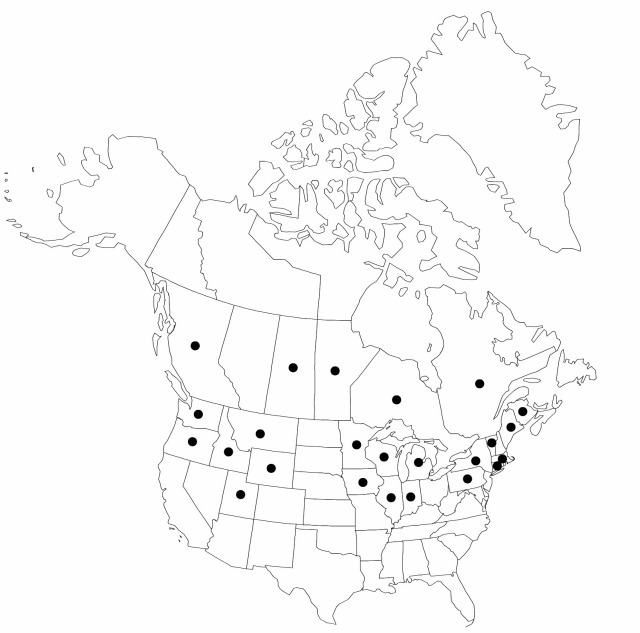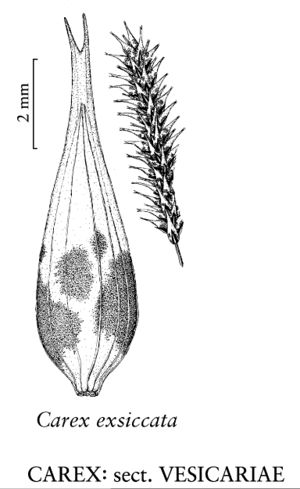Carex retrorsa
Ann. Lyceum Nat. Hist. New York 1: 71. 1824.
Plants cespitose; rhizomes very short or inconspicuous. Culms trigonous in cross-section, 10–105 cm, smooth distally. Leaves: basal sheaths dark reddish-brown; ligules longer than wide; blades mid to dark green, flat to W-shaped, widest leaves 3–10 mm wide, glabrous. Inflorescences 3–20 (–35) cm; proximal bract 19–70 (–100) cm, (2.5–) 3–9 times longer than inflorescence; proximal (2–) 3–6 spikes pistillate, ascending to spreading, at least the distal erect, ca. 20–150-flowered, cylindric; terminal 1 (–3) spikes staminate, slightly if at all elevated beyond summit of crowded pistillate spikes. Pistillate scales narrowly ovate, 2.4–4.5 × 1.1–1.8 mm, shorter than perigynia, margins entire, apex acute to acuminate, awnless. Perigynia mostly reflexed at maturity, often green or straw colored, strongly 6–13-veined, veins running into beak, ovate, 6–10 × (1.6–) 2.1–3.4 mm, apex abruptly tapered; beak 2.1–4.5 mm, bidentulate, smooth, teeth straight, 0.3–1.1 mm. Stigmas 3. Achenes pale-brown, symmetric, not indented, trigonous, smooth.
Phenology: Fruiting Jun–Aug.
Habitat: Swamps, wet thickets, often along streams, marshes, sedge meadows, shores of streams, ponds, and lakes
Elevation: 0–1900 m
Distribution

B.C., Man., N.B., Ont., Que., Sask., Conn., Idaho, Ill., Ind., Iowa, Maine, Mass., Mich., Minn., Mont., N.Y., Oreg., Pa., Utah, Vt., Wash., Wis., Wyo.
Discussion
Very rarely, specimens appear to be intermediate between Carex retrorsa and C. lupulina or C. lupuliformis; they are likely hybrids.
Selected References
None.
Lower Taxa
"shortened" is not a number.
